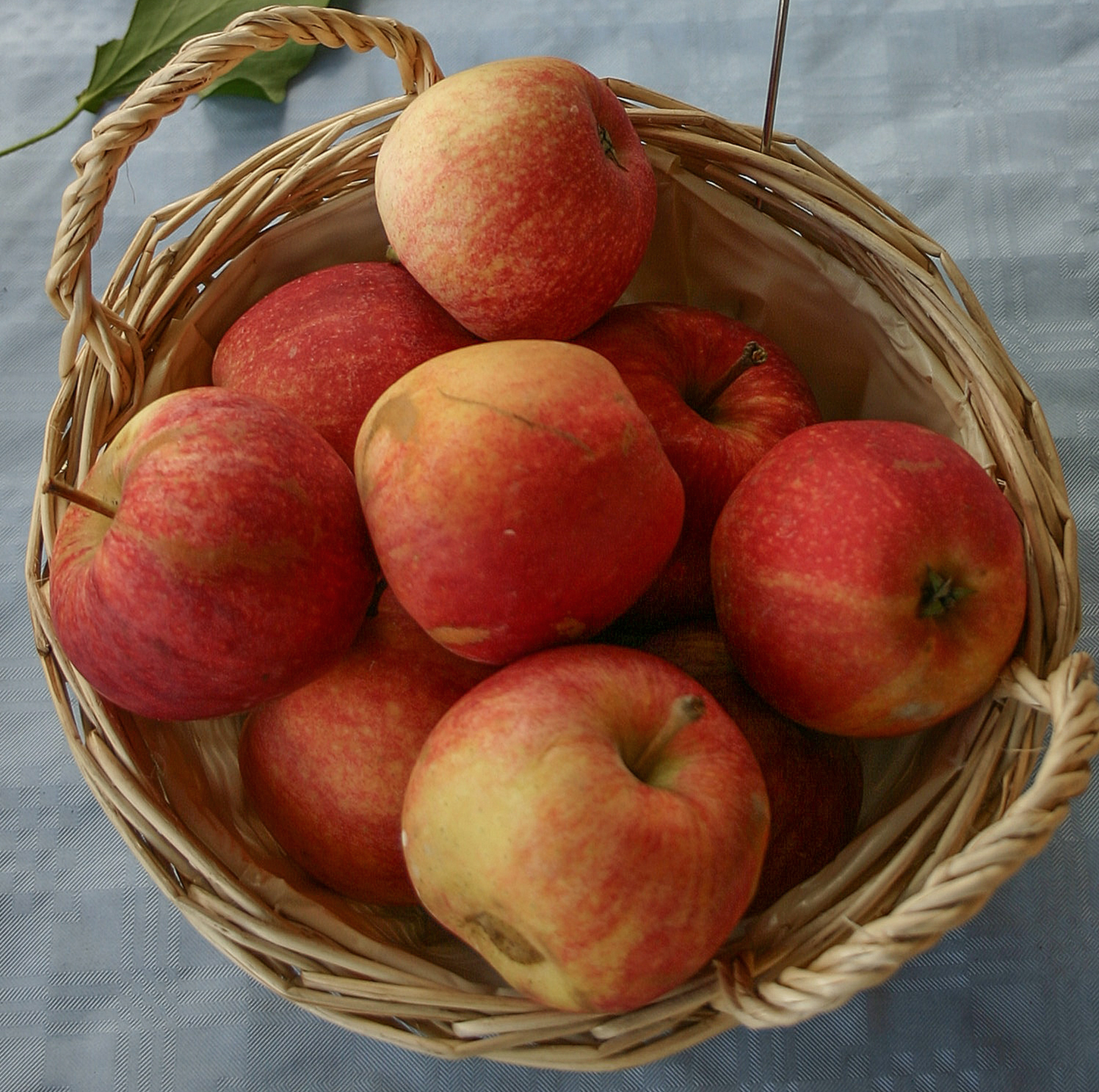
Anti-GM activists love to point out how the much-hyped promises of genetic engineering never really came to pass, and they're absolutely correct - we've had this technology for 25 years and have almost nothing to show for it. The thing is, many of these game-changing, high-tech crops
have been created,
they just haven't been released.
Dennis Gonsalves, famous for
the transgenic fruit that saved the Hawaiian papaya industry,* spoke recently on campus. The approach he used to create transgenic virus resistance has been proven for years and yet virtually no resistant crop varieties have been released - which is especially tragic given the many crippling viral diseases of the developing world.
Dennis' experiences illuminate some reasons behind this.
Don't wait for your variety to be perfectThe photo above is from his first greenhouse trial after transforming the papaya on the left with novel virus resistance. Conventional wisdom dictates that the next step would have been years of tests and breeding to produce the best possible version - but by then (with additional years required for regulation) the papaya industry would have been wiped out and there'd be no farmers left to adopt the resistant varieties.
Don't overthink itLearning to navigate regulation was much more complex and difficult than Dennis could have imagined. He repeatedly asserted that it was best to be a little naive and overly optimistic and just jump in with both feet. There are always people who "know" that you won't be able to get your variety through regulation or that the public won't accept it, but the truth is you never really know until you try.
Don't miss cultural opportunities
He also emphasized opportunities that arise from cultural issues. Hawaiian papaya farmers were desperate for a cure for papaya ringspot disease and were eager to try the transgenic variety. Furthermore, this population (many of who were of Asian and Japanese birth) had a sophisticated understanding of the Japanese consumer and fruit market. Their industry organization was therefore able to make great inroads into the Japanese papaya market.
Although regulation of transgenic crops is extremely rigorous in Japan, it's also apolitical. When transgenic papayas were found in loads of putatively non-transgenic Hawaiian papayas
twice, Japanese regulators worked with the Hawaiian industry to establish proper identity preservation systems. If the same had happened in Europe, it surely would have led to a scandal and a ban on all Hawaiian papayas. As it stands now, Japanese approval of the
transgenic variety is expected this year, 12 years after the process was initiated.
Dennis also described his disappointing failure to get virus-resistant papaya approved in Thailand, where this fruit is a core part of the traditional diet. Despite promising field trials, interested farmers and a rapidly growing virus epidemic, the Thai government has vacillated with moratoriums on transgenic field tests (largely thanks to Greenpeace protesters who broke into one of his test plots). It's unclear whether the government will lift the current research ban.
Overall he emphasized the importance for scientists to take this process into their own hands and really be tenacious.* It's not easy to usher a variety through the regulatory process, but it's profoundly important. Paraphrasing Dennis,
12 years from now, no one will read your articles, but your crop may help feed a nation.
*I should emphasize that the Hawaiian papaya "industry" consists of indigenous and immigrant family farms, hand-tended on small plots of land.
**As opposed to giving away control to a company or, more commonly, never doing anything with it at all.
Interestingly, an audience members asked what difficulties he had with corporate patents (as they key technologies required for genetic engineering are all patented by companies such as Monsanto). He said that on the contrary, companies provided absolutely no obstacles to his work. This sector was trivial to the big seed companies anyway and, more importantly, they've learned over the past two decades that their profits depend on good communication with the public, especially with altruistic projects like transgenic papaya.
 Development doesn't always go as planned. That's a normal dandelion seed head in the background but the one in front tried to make 3 in 1.
Development doesn't always go as planned. That's a normal dandelion seed head in the background but the one in front tried to make 3 in 1. Anti-GM activists love to point out how the much-hyped promises of genetic engineering never really came to pass, and they're absolutely correct - we've had this technology for 25 years and have almost nothing to show for it. The thing is, many of these game-changing, high-tech crops have been created, they just haven't been released.
Anti-GM activists love to point out how the much-hyped promises of genetic engineering never really came to pass, and they're absolutely correct - we've had this technology for 25 years and have almost nothing to show for it. The thing is, many of these game-changing, high-tech crops have been created, they just haven't been released. A car can make climate differences pretty obvious. The cherry blossoms are spent here down in the valley, but the hillsides were all decidedly brown when I climbed onto 81-south. The pears and apples were just getting rolling and the canopy trees were tentatively pushing out catkins. Somehow, our early burst of cherry and magnolia blossoms survived recent snow flurries - though I doubt the same occurred up in Saranac Lake.
A car can make climate differences pretty obvious. The cherry blossoms are spent here down in the valley, but the hillsides were all decidedly brown when I climbed onto 81-south. The pears and apples were just getting rolling and the canopy trees were tentatively pushing out catkins. Somehow, our early burst of cherry and magnolia blossoms survived recent snow flurries - though I doubt the same occurred up in Saranac Lake. Breeding apples is hard work. It takes 5 years to produce fruit from seed and you can't even cross them with close relatives.* Despite the difficulty of developing new varieties, there's already an incredible diversity of growth habits and fruit types in wild and domesticated apples, but almost all our commercial varieties are simply grafted clones that some lucky farmer found growing on his land. Today, only 11 such clones account for more than 90% of apples sold in the U.S.
Breeding apples is hard work. It takes 5 years to produce fruit from seed and you can't even cross them with close relatives.* Despite the difficulty of developing new varieties, there's already an incredible diversity of growth habits and fruit types in wild and domesticated apples, but almost all our commercial varieties are simply grafted clones that some lucky farmer found growing on his land. Today, only 11 such clones account for more than 90% of apples sold in the U.S.